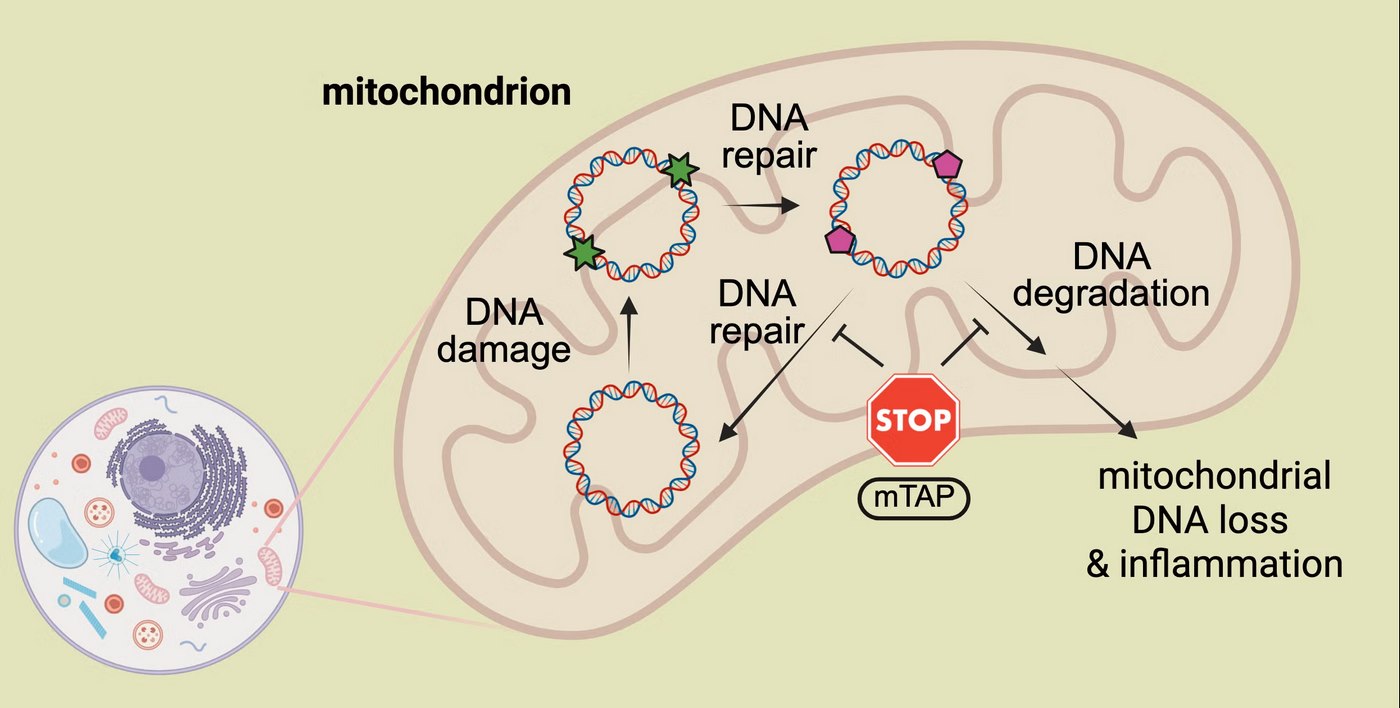T4K3.news
New chemical probe shown to protect mitochondrial DNA
Researchers developed a probe that prevents DNA damage associated with aging.

A breakthrough chemical probe aids in safeguarding mitochondrial DNA from damage.
Chemical probe offers hope in preventing DNA damage
Researchers at UC Riverside have introduced a new chemical probe that protects mitochondrial DNA, potentially altering approaches to treating age-related diseases. This probe binds to damaged areas within mitochondrial DNA, halting loss before it leads to critical cell dysfunction. The study, published in Angewandte Chemie, showcases the probe's effectiveness in laboratory settings, where it reduced mitochondrial DNA loss after exposure to harmful substances. This could have significant implications for conditions that arise from mitochondrial damage, such as Alzheimer's and diabetes.
Key Takeaways
"Our strategy is to stop the loss before it becomes a problem."
Linlin Zhao discusses the proactive approach of the new chemical probe.
"If we can retain the DNA inside the mitochondria, we might be able to prevent those downstream signals that cause inflammation."
Zhao emphasizes the potential impact on inflammation and disease prevention.
This innovative chemical probe signals a shift in the approach to cellular health, focusing on prevention rather than mere repair. Traditionally, efforts against aging and related diseases have targeted existing damage. By blocking the effects of DNA degradation, this probe could open the door to new therapeutic strategies that maintain mitochondrial integrity and function. Given the rising incidence of mitochondrial-related health issues, the timing of this discovery is particularly relevant. Future research could explore clinical applications, potentially transforming how we approach aging-related health challenges.
Highlights
- A new way to defend the genome under stress could change everything.
- Protecting mitochondrial DNA is a breakthrough for age-related disease.
- This could reopen conversations on aging solutions.
- The focus shifts from repair to prevention in cellular health.
Potential implications for public health and funding
The development of this chemical probe brings attention to future funding and research direction in disease prevention and aging-related therapies. Biomedical research often relies on government or private funding, which could be impacted by economic or political changes.
This advancement may herald a new era in the fight against age-related diseases.
Enjoyed this? Let your friends know!
Related News

New studies explore sunlight benefits for health

Common Mosquito Myths Could Endanger Health

Coca-Cola Introduces Cane Sugar Version Amid Health Debate

Eight babies born using DNA from three people

Galileo's Mission to Jupiter Ends

Experts warn of cancer risks in canned cocktails

New study explores causes of brain fog and long-COVID

Rosemary shows potential in Alzheimer's treatment
